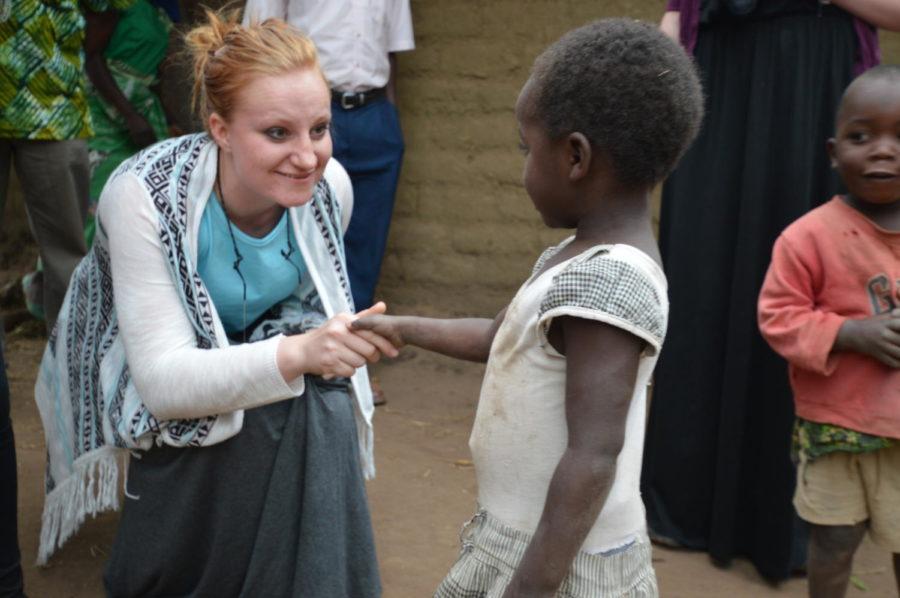Two ISU students particpate in Land O’ Lakes Global Food Challange
Olivia Reicks, senior in supply chain management, works with a Malawi child during her Land O’Lakes fellowship.
September 10, 2015
This past summer, two ISU students had the opportunity to go on a globetrotting adventure with the Land O’Lakes fellowship called Emerging Leaders For Food Security.
“It was a great honor,” said Olivia Reicks, senior in supply chain management. “They rolled out the red carpet for us … It was a very well-planned program.”
Reicks and Trey Forsyth, junior in agricultural business, were two of 10 college students chosen from five universities for the Emerging Leaders For Food Security fellowship and to take on the Global Food Challenge, a program aimed at creating innovative new solutions to the problem of food security.
The fellowship, which included an internship that took place over the summer, challenged them to cultivate an original idea on how to impact food security in developing nations around the world.
“Food security is one of the most complex and crucial issues people of our generation will face,” Forsyth said.
Food security is about the amount of food in the world and the ability of people to access it. People are food secure when they have reliable access to food. The issue is timely because the world’s population will grow from 7.3 billion people to 9.6 billion in 2050, according to Land O’Lakes Inc., a farmer owned co-op company with a vested interest in food security.
Reicks’ and Forsyth’s fellowship with Land O’Lakes started last fall as they created and researched proposals.
Reicks’ proposal involved helping farmers in Malawi reduce transportation costs to allow them to bring in more income. Additionally, she focused on how to transform Malawi’s food supply chain of pigeon peas to take on the format of the more successful tobacco industry in the country. Reicks also looked at how to build more secure storage.
“The answer to food security is not just food,” Reicks said. “It’s also societal factors [such as] not having market access and not having proper storage technology.”
Forsyth’s proposal was vastly different — his involved starting food processing co-ops and getting a grant to improve the registration process. Forsyth said co-ops are important because members can democratically vote on issues.
The next phase was an 11-week internship in which participants spent one week in Washington D.C. and two weeks in Malawi in Africa. During that time, they worked with people in engineering, agriculture, business, marketing and their own mentors to make their ideas a reality.
One of the challenges Reicks and Forsyth had to overcome was the lack of classroom and college experience, said Carly Cummings, program coordinator for the economics department. She also served as Forsyth’s designated ISU mentor for the program.
“In every school assignment, you have a rubric and know exactly what you’re supposed to do to get there,” Reicks said. “Food security isn’t that way.”
Forsyth said a challenge he faced was bringing down the scope of his broad ideas to a narrower vision. Another challenge he noted was the issue of feasibly tying them into Land O’Lake’s business model.
“It’s not just saying, ‘Here’s what you can do,’ but laying out the plan of how you can do it was probably the biggest challenge that we faced,” Forsyth said.
Forsyth said despite the challenges he faced he learned how to adapt to new issues, which helped him develop and improve his critical thinking skills.
Reicks and Forsyth grew immensely in their critical thinking and communication skills, Cummings said.
“Feeding the world is not the silver bullet that some people may think,” Cummings said. “By the end of the summer, they were able to dig deep and find smaller projects that will make a large economic effect on the world.”
Applications for the next Land O’Lake’s Emerging Leaders For Food Security are open through Sept. 25.







